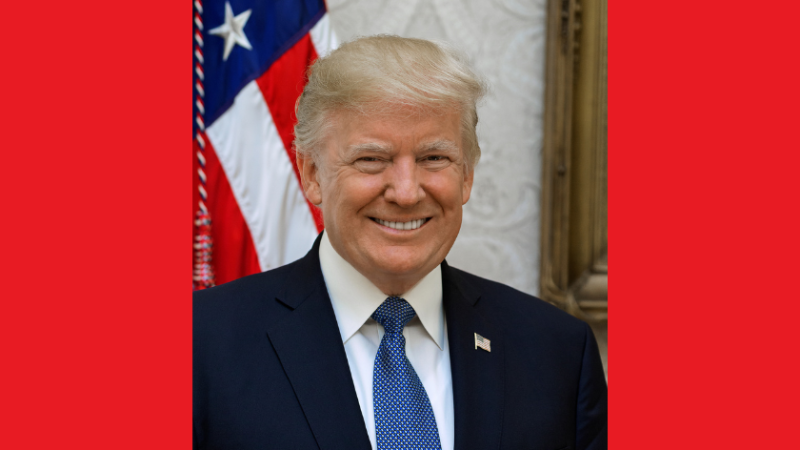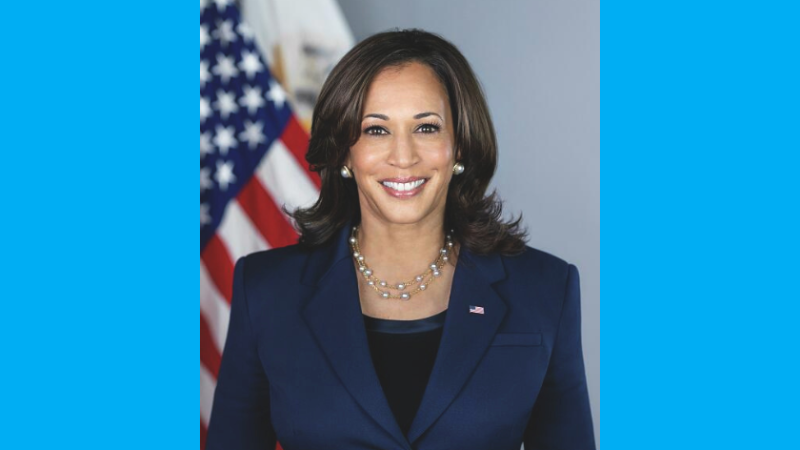With both contenders bringing executive branch experience, the implications for America's technology sector hang in the balance. What shifts in tech policy and regulation might emerge under each potential administration? How would their differing approaches to innovation, AI, and energy reshape the landscape for industry operators?
Capacity examines the potential impact of each candidate's victory on the technology space, breaking down their positions, track records, and likely policy directions.
Subscribe today for free
Donald Trump
45th US president
2017-2021

Repeal of Biden’s AI executive order
High up on the GOP’s technology-related agenda is the prospective repealing of President Joe Biden’s Executive Order on AI. The Republican Party manifesto described the order, which encourages US government agencies to introduce risk governance to AI technologies, as “dangerous.”
Trump and co believe Biden’s AI order “imposes radical left-wing ideas on the development" of AI technologies.
In its place, a Trump presidency would instead support AI development rooted in free speech and human flourishing.”
At a campaign rally in Iowa last December, Trump said he would cancel the executive order “on day one” and ban AI technologies used to censor the speech of American citizens.
“This could create a more open environment for tech companies to innovate without stringent oversight, though it raises concerns around ethical AI development and accountability,” Sam Taylor, a policy analyst at LLC.org told Capacity.
Repeal of the CHIPS and Science Act
Another piece of legislation signed off by President Biden that would be under threat if Trump were to re-take office is the CHIPS and Science Act, which provides federal subsidies to chipmaking firms to encourage them to expand production in the US.
Trump described the legislation as “bad” and claimed that Taiwan was “not going to give [the US] the good companies” — despite the fact the subsidies are available to any semiconductor manufacturer, not exclusive ones from Southeast Asia.
Notably, some of Trump’s most prominent supporters in the Senate, such as Lindsey Graham, Steve Daines, and Roger Wicker voted in favour of passing the CHIPS and Science Act.
Trump wants to replace the subsidies with tariffs, a protectionist mechanism he implemented consistently throughout his initial presidency. Appearing on the Joe Rogen podcast, Trump said he would place tariffs on chips similar to how he plans to impose a 100% tariff on every car imported from Mexico if he wins the election, describing the concept as “more sophisticated, but no different.”
Elon Musk
The billionaire at the feast, Elon Musk has been helping bankroll the Trump re-election campaign. Acting as a mega-donor, Musk established the America PAC to support Trump and other Republican candidates, personally contributing $75 million.
There have been suggestions Trump would reward Musk with a cabinet position, telling Fox News he wants to appoint him to a new cabinet position: Secretary of cost-cutting.
There are suggestions Musk may even appear in a consulting role, with Trump telling Reuters he “certainly would” consider appointing the billionaire backer as an advisor.
Musk said in a post on X (formerly Twitter) that he was “willing to serve." However, given his extensive portfolio of businesses, including Tesla, SpaceX and Starlink, and xAI, Michael O'Rielly, a former commissioner of the US Federal Communications Commission (FCC), suggested to Capacity that his private ventures would force Musk’s likely involvement to be more on the advisory side.
“This could include how and where to reduce federal regulations burdening private companies and specific advice on departments and agencies his businesses are most familiar, including Treasury, Commerce and the FCC.”
I am willing to serve pic.twitter.com/BJhGbcA2e0
— Elon Musk (@elonmusk) August 20, 2024
Musk, a self-proclaimed free speech absolutist, could also advise Trump on potential AI governance to avoid hindrances to his AI efforts, such as his plan to build out Grok, his rival to OpenAI’s ChatGPT.
Energy and climate tech: A return to fossil fuels
Any second Trump presidency would likely favour a return to traditional energy over renewables.
Trump previously claimed he does not believe in climate change, describing it as “non-existent” and a hoax created by the Chinese government.
The GOP manifesto affirms a plan to return to fossil fuels, with “DRILL BABY DRILL” all in caps alongside a pledge to make the US “energy independent again."
“The US has more liquid gold under our feet than any other Nation, and it's not even close. The Republican Party will harness that potential to power our future,” the manifesto reads.
During his second presidency, Trump may even roll back climate initiatives and subsidies for clean energy technologies, a potential knife in the heart for operators looking to switch to renewables.
5G: Tariff troubles & ‘sound’ appointments
Trump has previously emphasised US leadership in 5G technology. In his first term, he made 5G development a federal priority and signed the Secure 5G and Beyond Act. A second Trump term may continue to push for US dominance in 5G and next-generation telecom tech.
Taylor suggests Trump’s past focus on infrastructure could prompt renewed emphasis on national 5G networks, potentially with increased involvement from figures like Musk.
Blake Morgan, managing partner of Mineral Vault told Capacity that a potential second Trump administration would likely ramp up trade tensions, possibly impacting the manufacturing of 5G infrastructure and telecommunications equipment, “especially if new tariffs are introduced.”
Former FCC commission O'Rielly, however, said that during his prior presidency, Trump had “an extensive track record in hiring sound and respected personnel in communications policy to work within the White House” and a second term would likely be more of the same.
“[Trump] is likely to select well-known, smart, and committed individuals who believe in the free market economy and the dire need to deregulate communications companies from unnecessary and costly government mandates,” O'Rielly said. “Faster and more accountable nationwide deployment of broadband and advanced wireless networks, such as 5G, likely will be a priority, as well as eliminating added and costly burdens on affected industries by the Biden administration.”
Manufacturing: Return of the trade wars?
During Trump’s first presidency, hard-line protectionist rhetoric related to manufacturing and the protection of innovation was a flagship focus of his administration as it pushed to wrestle back control of production from markets like China.
Such policy could be construed as having laid the groundwork for the Biden administration’s CHIPS and Science Act for the semiconductor market.
A second term for Trump will likely be more of the same, with the Republican manifesto suggesting he would again focus on the US becoming a “manufacturing superpower.”
Taylor told Capacity that the return of intense trade war rhetoric could drive more tech and manufacturing back to the US but it may also strain international tech relations and increase costs on imports.
Reverse crackdown on crypto
Also oon Trump’s tech to-do list is to end what the GOP described as the “Democrats' unlawful and un-American crypto crackdown.”
Trump’s team likened the right to mine Bitcoin to a personal freedom, “every American has the right to self-custody of their digital assets, and transact free from government surveillance and control.”
A Trump presidency would also oppose any attempt by the Federal Reserve to create a central bank for digital currencies. While America’s central bank has examined the concept, no official line is being pursued at this time.
Trump and his team are pro-crypto, with the 45th US president having his own line of NFTs, which he advertises as “digital trading cards.” He even a cryptocurrency bearing his name: TrumpCoin, though not officially endorsed, to add to his ever-growing line of merchandise that includes sneakers, bibles, and strips of suits he previously wore.
Increase military tech
One technology area a potential Trump administration would look to increase support for would be military tech.
Trump is no stranger to blasting the military-industrial complex. When he was last in office, oversaw intense increases in defence spending to improve what he saw as a military lagging behind adversaries.
A potential second Trump administration would plan to build out research and advanced technologies to “ensure [the US] military is the most modern, lethal and powerful force in the world.”
The Republican manifesto talks of plans to build a "Missile Defence Shield," what Trump described as a “great Iron Dome” similar to the one used in Israel.
Kamala Harris
49th vice president of the United States
2021 - present

Supporting the CHIPS and Science Act
Unlike Trump, who wants to repeal the CHIPS and Science Act, a Harris administration would likely continue to support and potentially even ramp up the federal programme.
The scheme has already offered hundreds of billions of dollars to some of the biggest names in semiconductor manufacturing to entice them to bring production back to the US, including Intel, Samsung, SK Hynix, and TSMC.
The funding has also helped US-based chipmakers expand production efforts, with HSC, Infinera, and Wolfspeed among those to have taken advantage of the subsidies.
Taylor suggested under Harris, CHIPS and Science Act investments would likely continue, “pushing America’s semiconductor manufacturing capabilities to new heights and reducing dependence on foreign suppliers.”
Extending internet connectivity
Among the projects Harris led during her time as Vice President were the administration’s $42 billion plan for expanding high-speed internet to millions of Americans.
She was also part of the $1.4 billion State Digital Equity Capacity Grant Program, which provides families with resources and skills to access reliable internet connections.
The Democrat candidate is expected to continue plans to bring high-speed to citizens as the party’s manifesto pledges to bring “affordable, reliable, high-speed internet to every American household.”
Harris came under fire for her role in the Biden administration’s 'Internet for All' efforts, with senior Republicans claiming her position as Broadband Czar was “marked by poor management and a lack of effectiveness despite significant federal broadband investments and your promises to deliver broadband to rural areas.”
While her position on projects like the Broadband Equity Access and Deployment (BEAD) programme were unclear, O'Rielly told Capacity that Vice President Harris would likely maintain the current path that has been “enormously slow and ineffective in bringing private broadband to unserved households.
“The added layers of mandates imposed by the Biden Administration likely would stay,” he added.
Her efforts on improving connectivity aren’t limited to extended connectivity in the US, either, with Harris among the world leaders behind the nonprofit Partnership for Digital Access in Africa, which aims to provide internet access to 80% of Africa by 2030.
Ramp-up of AI governance
If Harris wins the election, she is likely to be far more cautious when it comes to AI than Trump, potentially following similar courses of action to Biden.
Under the Biden administration, US government agencies were forced to conduct lengthy risk assessment efforts to ensure use of AI does not impact the rights of citizens, with strict rules put in place for testing and procuring new AI tools and technologies.
Her party’s manifesto states that it will continue to advocate for the safe and secure development of AI, investing in the country’s AI Safety Institute to create guidelines, tools, benchmarks, and best practices for evaluating dangerous capabilities and mitigating AI risk.
Harris herself was made the AI Czar under Biden, tasking the VP with bringing together executives from leading AI firms, including Sam Altman, CEO of OpenAI, Google CEO Sundar Pichai, and Satya Nadella, CEO of Microsoft to secure their support for voluntary commitments to responsible AI development.
During her nomination acceptance speech, Harris said the US can “lead the world into the future on space and AI.”
Morgan told Capacity that under Harris we could expect increased support for research funding, renewables, and AI governance to try and keep the country at the forefront of innovation.
Click to cancel & "junk fees”
One policy position of any potential Harris administration set to directly impact telcos is the concept of ‘click-to-cancel’ — a new rule from the Federal Trade Commission (FTC) aiming to clamp down on businesses from auto-renewing subscriptions without consumers' consent.
It’s part of the Democrats’ clamp down on so-called “junk fees,” hidden charges that companies add on to people's bills without their knowledge.
Having already taken action against airlines and hotels, it’s the turn of internet providers to face the FCC scrutiny, requiring them to obtain consent from customers before automatically renewing their subscriptions or converting free trials into paid memberships.
Morgan told Capacity that Harris’ push behind click-to-cancel internet packages “reflects a focus on consumer rights that could impact telcos directly, emphasising transparency and reducing hidden fees.”
O'Rielly suggested that the FTC’s click-to-cancel rule could be advanced in a Harris administration, expanded to cover all communications companies’ services, “despite the enormous differences between sectors and loss in consumer benefits.”
Possible taxation on high-earning tech firms
The Democratic nominee has proposed a potential headache for high-earning figures in tech in the form of a tax plan that would tax people with more than $100 million on at least 25% of their income and unrealised capital gains.
The plan aims to raise nearly $5 trillion and would affect billionaires like Elon Musk and Jeff Bezos whose wealth is largely derived from the stocks they own.
Harris’ tax plan would also hit founders and backers of startup companies, with the likes of Sam Altman of OpenAI and Nvidia CEO Jensen Huang potential in line for hefty tax bills.
Increased support for renewables
Unlike Trump who wants to scale back on the renewable energy front, a Harris administration would align with increased support for sustainable tech innovation.
Having called climate change an existential threat, the Democrat candidate worked to pass the Biden administration’s Inflation Reduction Act, the largest injection of US government cash to fund climate and clean-energy initiatives in history, which included subsidies for clean-energy technologies.
RELATED STORIES
Trump threatens to dismantle Biden's chip strategy in favour of tariffs
10 of the biggest telecoms M&A deals in North America in 2024






